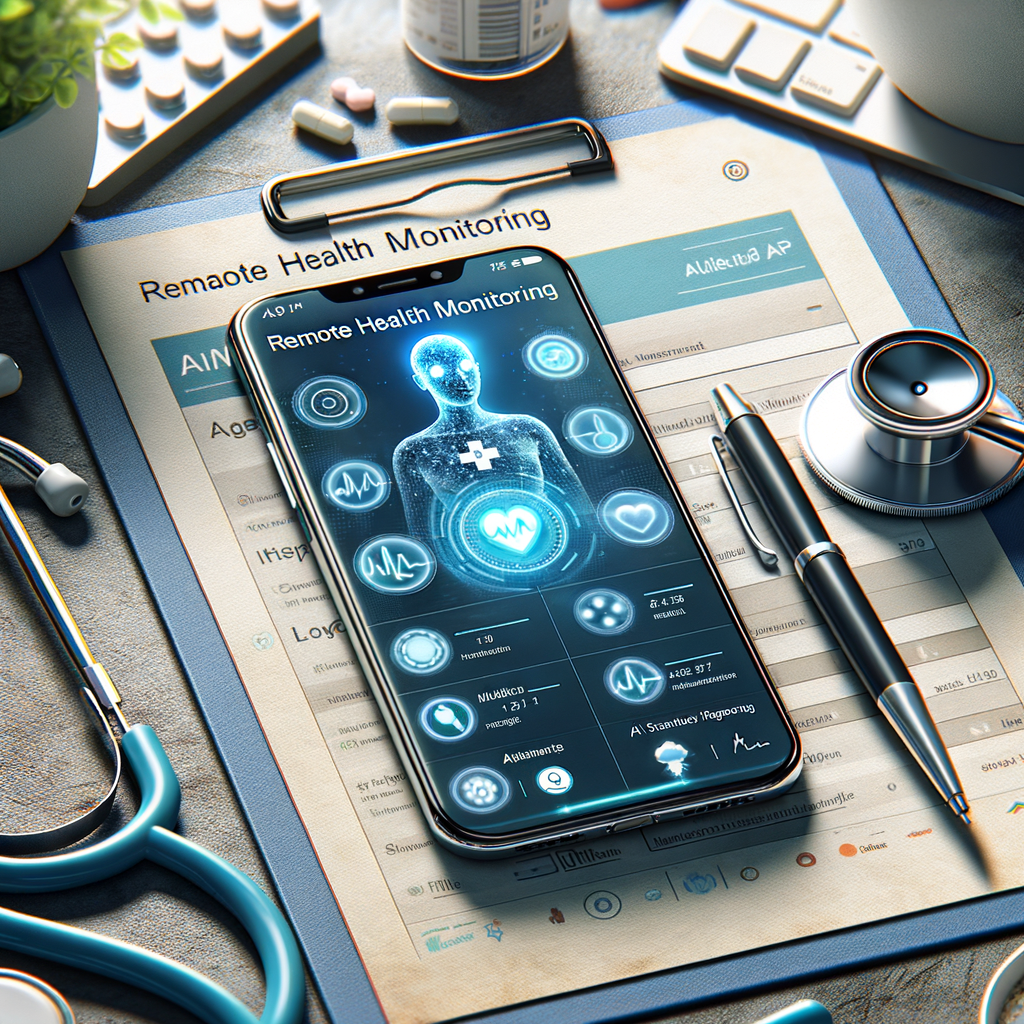AI Phone Agents Enhance Remote Health Monitoring
AI Phone Agents Enhance Remote Health Monitoring

Healthcare – Facilitating Remote Health Monitoring with AI Phone Agents
Introduction to Remote Health Monitoring
Imagine a world where your healthcare needs are managed right from the comfort of your home. Thanks to the rapid advancements in technology, particularly artificial intelligence (AI), this is becoming a reality. Remote health monitoring is revolutionizing the healthcare industry, making it more accessible, efficient, and patient-friendly.
The Role of AI in Healthcare
From Concept to Practice
Artificial intelligence is no longer just a concept from sci-fi movies. Today, it plays a pivotal role in various sectors, including healthcare. AI algorithms can predict patient outcomes, assist in surgeries, and now—thanks to AI phone agents—monitor health remotely.
What Are AI Phone Agents?
AI phone agents are intelligent systems designed to interact with patients over the phone. These agents can schedule appointments, provide medical advice, remind patients to take medication, and even monitor vital signs. Essentially, they act as a bridge between patients and healthcare providers.
Benefits of Remote Health Monitoring
Convenience and Accessibility
One of the biggest benefits of remote health monitoring is the convenience it offers. Patients no longer need to travel to healthcare facilities for routine check-ups. This is especially beneficial for those living in remote areas or with mobility issues.
Cost-Effectiveness
Healthcare can be expensive, but remote monitoring can help reduce costs significantly. By minimizing the need for hospital visits and enabling early detection of potential health issues, patients can save money while receiving better care.
Improved Patient Outcomes
With continuous monitoring, healthcare providers can detect anomalies and intervene sooner. This proactive approach leads to better management of chronic conditions and overall improved patient outcomes.
How AI Phone Agents Work in Remote Health Monitoring
Data Collection and Analysis
AI phone agents collect data from various sources, such as wearables, home medical devices, and patient input during calls. This data is then analyzed to provide insights and make informed decisions regarding patient care.
Communication and Interaction
These agents use natural language processing (NLP) to communicate effectively with patients. They can understand and respond to patient queries, provide reminders, and even offer emotional support, creating a more human-like interaction.
Integration with Healthcare Systems
AI phone agents are integrated with healthcare systems to ensure that all patient data is synchronized with medical records. This integration allows healthcare providers to access timely information, make better clinical decisions, and provide personalized care.
Challenges and Solutions in Implementing AI Phone Agents
Privacy and Security
One of the primary concerns with remote health monitoring is the privacy and security of patient data. However, advanced encryption methods and strict compliance with regulations can mitigate these concerns.
Technological Barriers
Not all patients have access to the latest technology. Providing affordable and user-friendly devices can help bridge this gap and ensure that everyone benefits from remote health monitoring.
Training and Adaptation
Healthcare providers need to be trained to work with AI phone agents. Continuous education and adaptation of healthcare professionals will be crucial for the successful implementation of these technologies.
Case Studies: Success Stories of AI in Remote Health Monitoring
Case Study 1: Chronic Disease Management
In a pilot project, an AI-driven phone agent was used to monitor patients with chronic diseases like diabetes and hypertension. The results showed a significant improvement in patient adherence to medication and overall health outcomes.
Case Study 2: Elderly Care
An AI phone agent was deployed to assist elderly patients living alone. The agent provided daily check-ins, medication reminders, and emergency assistance, reducing the need for frequent hospital visits and improving the patients’ quality of life.
The Future of AI Phone Agents in Healthcare
Advancements in AI Technologies
The future looks promising with continuous advancements in AI technologies. As algorithms become more sophisticated, the capabilities of AI phone agents will expand, offering even more personalized and effective healthcare solutions.
Integration with Wearables and IoT
The integration of AI phone agents with wearables and Internet of Things (IoT) devices will provide a more comprehensive and real-time monitoring solution. This will enable a seamless flow of information and provide deeper insights into patients’ health.
Global Adoption and Accessibility
With global adoption, remote health monitoring can become a standard practice, making healthcare more accessible to underserved populations. Efforts to make this technology affordable and user-friendly will be key to its widespread use.
Conclusion
AI phone agents are paving the way for a new era in healthcare. By facilitating remote health monitoring, they offer unparalleled convenience, cost-effectiveness, and improved patient outcomes. Despite challenges, the future is bright as technology continues to evolve, promising to make healthcare more accessible and efficient for everyone.
FAQs
1. What are AI phone agents?
AI phone agents are intelligent systems designed to interact with patients over the phone, providing medical advice, reminders, and health monitoring.
2. How do AI phone agents improve patient outcomes?
AI phone agents facilitate continuous monitoring, early detection of health issues, and timely intervention, leading to better management of chronic conditions and overall improved patient outcomes.
3. What are the privacy concerns with remote health monitoring?
Privacy concerns include the security of patient data. Advanced encryption methods and strict compliance with regulations are essential to mitigate these concerns.
4. Can AI phone agents be integrated with existing healthcare systems?
Yes, AI phone agents can be integrated with existing healthcare systems to ensure synchronized patient data and provide personalized care.
5. What is the future of AI phone agents in healthcare?
With advancements in AI technologies and integration with wearables and IoT, the future of AI phone agents in healthcare promises more personalized and effective solutions, wider adoption, and better accessibility.

